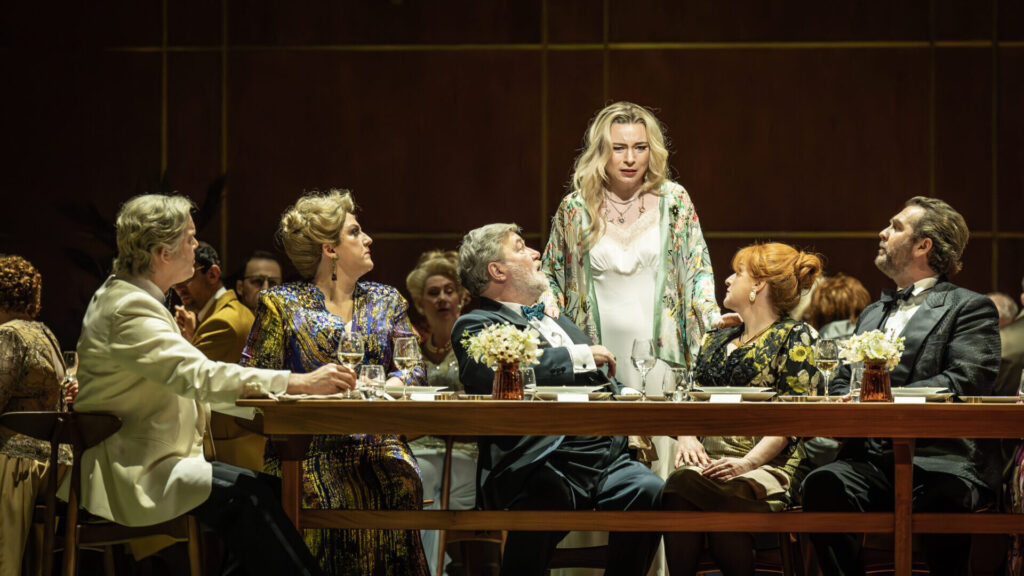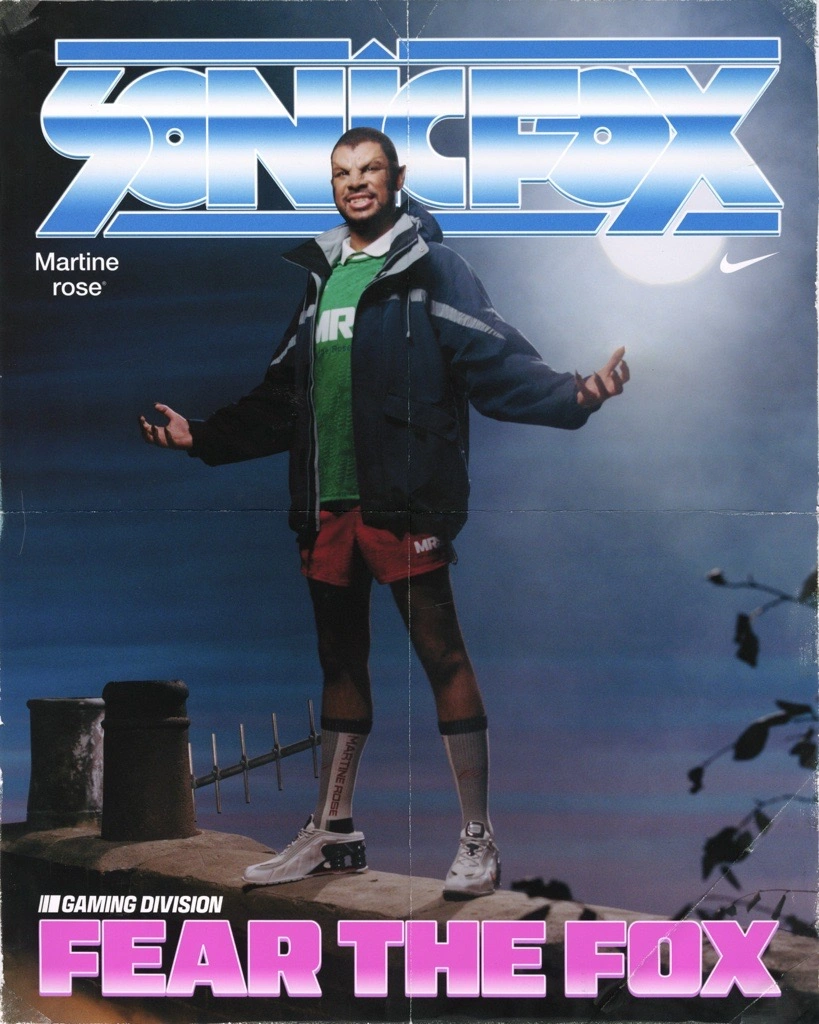When Thomas Vinterberg’s “Festen” premiered in 1998, it was a cinematic revelation. As the first film to adhere to the Dogme 95 manifesto, its raw, unfiltered style captivated audiences and catapulted the young director into the limelight. The film’s exploration of harrowing themes such as historic child abuse, racism, and suicide made for an intense viewing experience, one that has retained its power over the decades. Now, over25 years later, “Festen” is experiencing a renaissance, this time on the stage of the Royal Opera House in London.
This operatic adaptation is a convergence between composer Mark-Anthony Turnage and screenwriter Lee Hall. Turnage, known for his work on the opera “Anna Nicole” and the Mercury Prize-nominated concerto “Your Rockaby,” brings his unique musical voice to the production. Hall, celebrated for his screenwriting in “Billy Elliot” and “Rocketman,” lends his narrative expertise. As “Festen” opens to some of the strongest reviews of Turnage’s career, we delve into the creative process behind this ambitious adaptation, exploring how recent trends in opera and theater have influenced its development.
The Evolution of “Festen”: From Film to Opera
Transforming a film as iconic as “Festen” into an opera is no small feat. The original movie’s impression lay in its stark realism and the emotional intensity of its performances. For Turnage and Hall, the challenge was to retain this raw power while translating it into a medium that thrives on grandiosity and abstraction.
Recent trends in opera have seen a shift towards more contemporary and relatable narratives, moving away from the traditional tales of myth and legend. This evolution has opened the door for adaptations of modern works, eliciting opera to engage with current social issues and resonate with today’s audiences. “Festen,” with its exploration of family secrets and societal taboos, fits perfectly into this new operatic landscape.
The Music: Turnage’s Compositional Approach
Mark-Anthony Turnage is renowned for his ability to blend classical music with contemporary influences, creating compositions that are both innovative and accessible. For “Festen,” Turnage drew inspiration from the film’s emotional depth and its minimalist aesthetic. His score reflects the tension and unease that permeate the story, using dissonance and unconventional rhythms to mirror the characters’ inner turmoil.
In recent years, there has been a growing trend towards incorporating diverse musical styles into opera, breaking down the barriers between genres. Turnage’s work on “Festen” exemplifies this trend, as he weaves elements of jazz, rock, and electronic music into the traditional operatic framework. This merge not only enhances the emotional impression of the story but also broadens the appeal of the opera to a wider audience.
The Libretto: Hall’s Narrative Craftsmanship
Lee Hall’s involvement in the project brings a narrative precision that complements Turnage’s musical vision. Known for his ability to craft compelling stories with emotional depth, Hall approached the adaptation with a keen understanding of the film’s core themes. His libretto captures the essence of “Festen,” distilling its complex narrative into a form that is both concise and impressionable.
One of the challenges Hall faced was maintaining the film’s tension and pacing within the operatic structure. Opera, by nature, unfolds at a slower pace than film, allowing for deeper exploration of characters’ emotions and motivations. Hall embraced this opportunity, delving into the psychological complexities of the characters and providing audiences with a more intimate understanding of their struggles.
Rehearsal Insights: The Creative Process Unveiled
During the rehearsal period, the anticipation surrounding “Festen” was palpable. The creative team, including Turnage and Hall, worked closely with the cast and crew to bring their vision to life. This connective process was crucial in ensuring that the opera remained true to the spirit of the original film while also standing as a unique artistic work.
Recent trends in theater and opera have emphasized the importance of flow and experimentation in the creative process. Directors, composers, and performers are increasingly encouraged to take risks and push the boundaries of traditional storytelling. This spirit of innovation was evident in the rehearsals for “Festen,” where the team explored new ways to convey the story’s emotional intensity and thematic complexity.
Audience Reception: A New Chapter for “Festen”
As “Festen” opened to critical acclaim, it became clear that the operatic adaptation had struck a chord with audiences. The production’s success is a testament to the enduring power of Vinterberg’s story and the skill with which Turnage and Hall have reimagined it for the stage. The opera’s ability to engage with contemporary issues and resonate with modern audiences highlights the potential for opera to remain a relevant and dynamic art form.
Recent trends in audience engagement have shown a growing interest in productions that challenge societal norms and provoke thoughtful discussion. “Festen” fits this mold, offering a poignant exploration of family dynamics and the impact of hidden traumas. Its success suggests that there is a strong appetite for operas that tackle difficult subjects and reflect the complexities of the human experience.
The Future of Opera and Adaptation
The operatic adaptation of “Festen” marks an exciting new chapter in the story of this iconic film. It demonstrates the potential for opera to evolve and adapt, embracing contemporary narratives and diverse musical influences. As the art form continues to grow and change, productions like “Festen” pave the way for future adaptations, encouraging composers and librettists to explore new stories and push the boundaries of traditional opera.
In a world where the lines between different forms of media are increasingly blurred, the success of “Festen” serves as a reminder of the power of storytelling in all its forms. Whether on screen or stage, the ability to connect with audiences and provoke meaningful reflection is the true measure of a work’s impact. As “Festen” continues to captivate audiences at the Royal Opera House, it stands as a testament to the enduring relevance of opera and its capacity to engage with the pressing issues of our time.
No comments yet.








